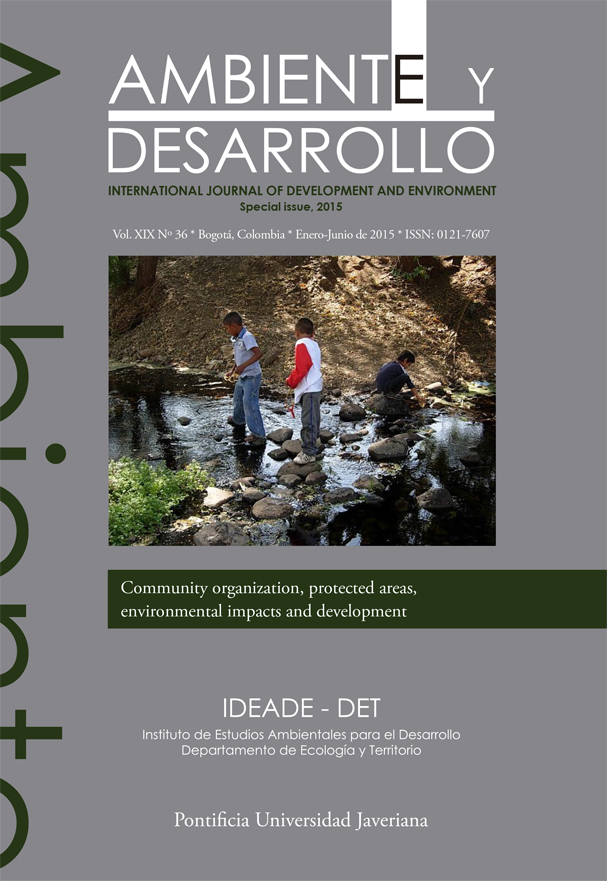Abstract
Multifunctionality of agriculture is considered a legitimate objective of agricultural policies. Nevertheless, the debate to establish the best way to promote these functions as a whole is still open. This paper analyzes the legitimacy of European aid to agriculture from a local perspective, and under the argument of multifunctionality. To this end, the banana sector of the Canary Islands was selected as a case study, where a participatory study was conducted with all of the agents involved. The results show that European aid to this sector contributes to the achievement of social and environmental objectives. However, it was revealed that the aid should make a more concentrated effort to attain modernization and differentiation of local productive quality, and to promote competitivenessAmbiente y Desarrollo is registered under a Creative Commons Attribution 4.0 International Public License. Thus, this work may be reproduced, distributed, and publicly shared in digital format, as long as the names of the authors and Pontificia Universidad Javeriana are acknowledged. Others are allowed to quote, adapt, transform, auto-archive, republish, and create based on this material, for any purpose (even commercial ones), provided the authorship is duly acknowledged, a link to the original work is provided, and it is specified if changes have been made. Pontificia Universidad Javeriana does not hold the rights of published works and the authors are solely responsible for the contents of their works; they keep the moral, intellectual, privacy, and publicity rights.
Approving the intervention of the work (review, copy-editing, translation, layout) and the following outreach, are granted through an use license and not through an assignment of rights. This means the journal and Pontificia Universidad Javeriana cannot be held responsible for any ethical malpractice by the authors. As a consequence of the protection granted by the use license, the journal is not required to publish recantations or modify information already published, unless the errata stems from the editorial management process. Publishing contents in this journal does not generate royalties for contributors.


